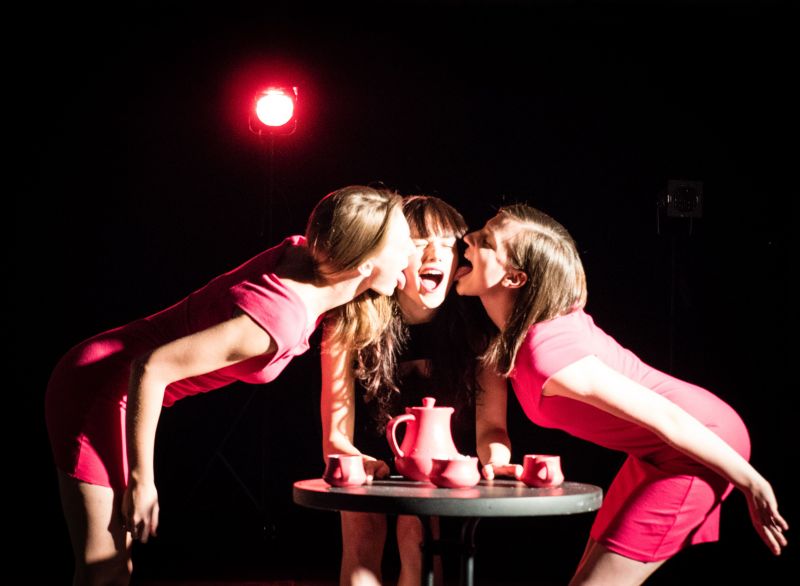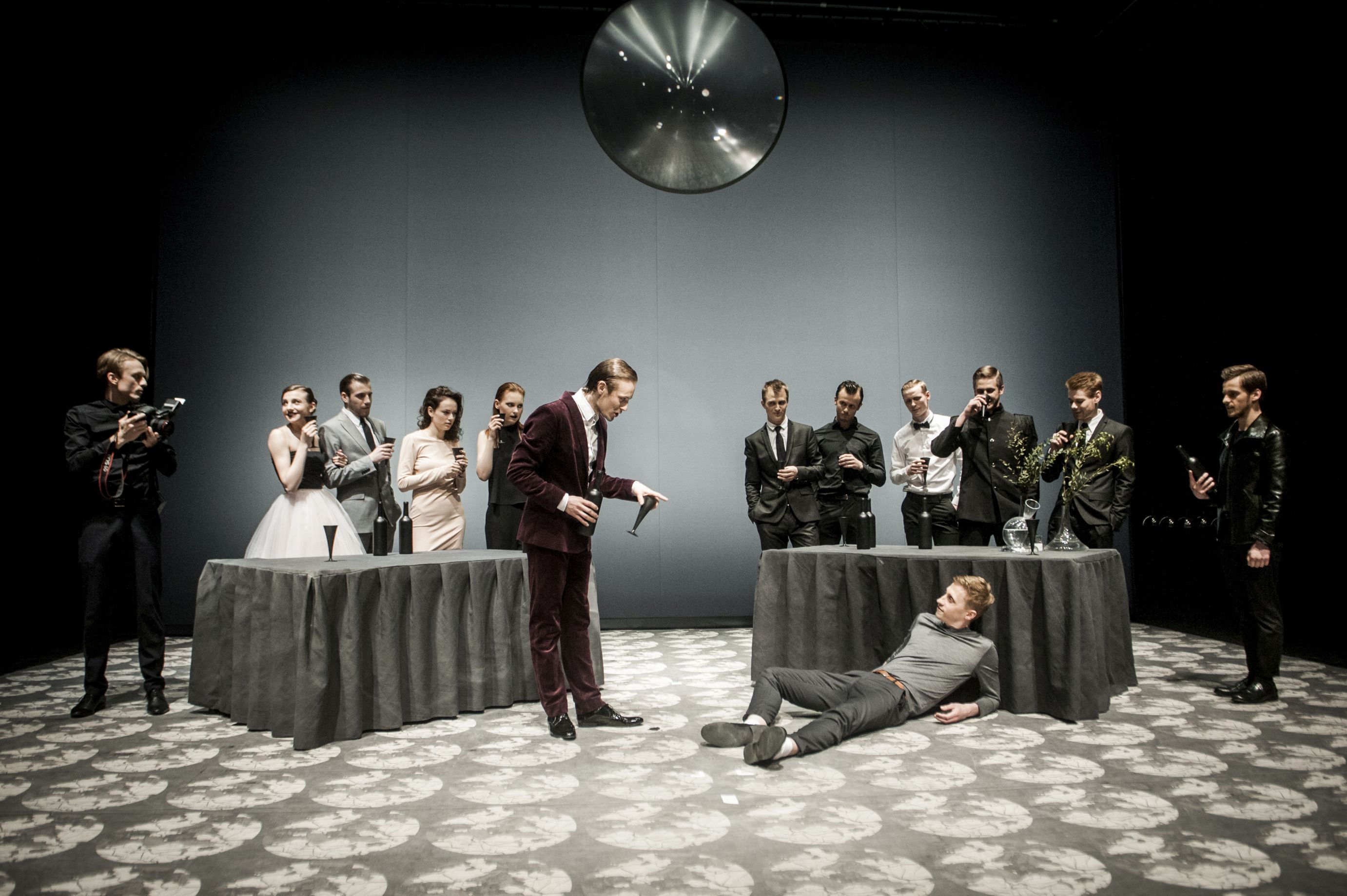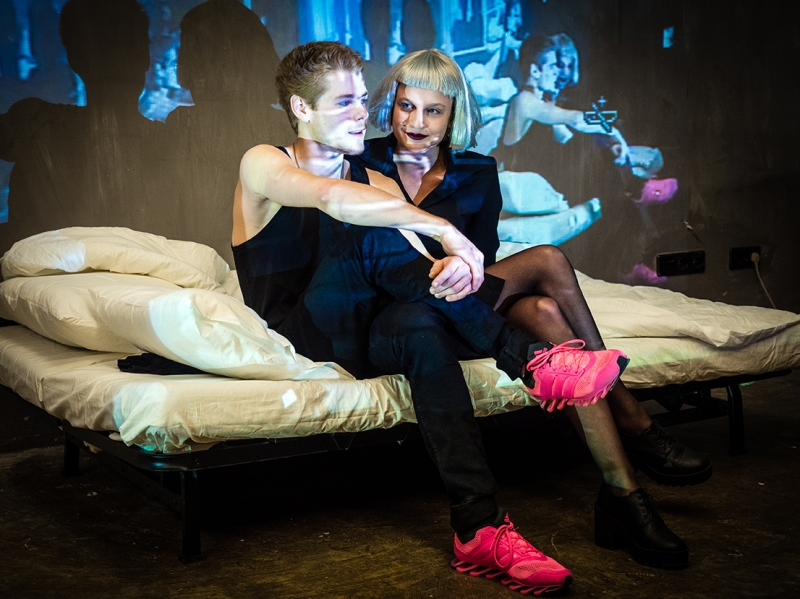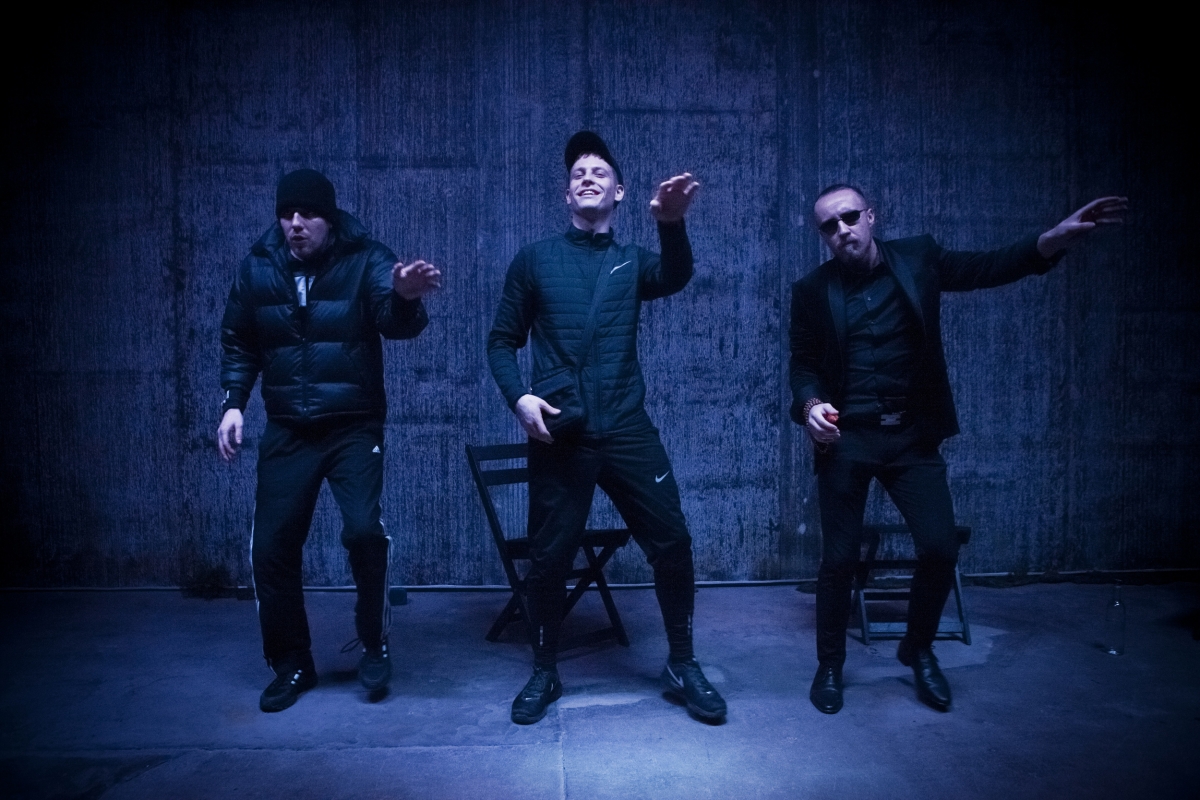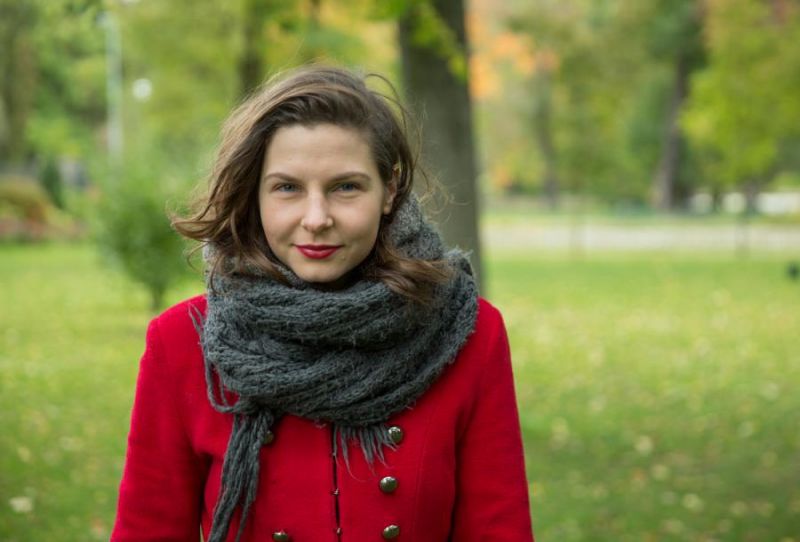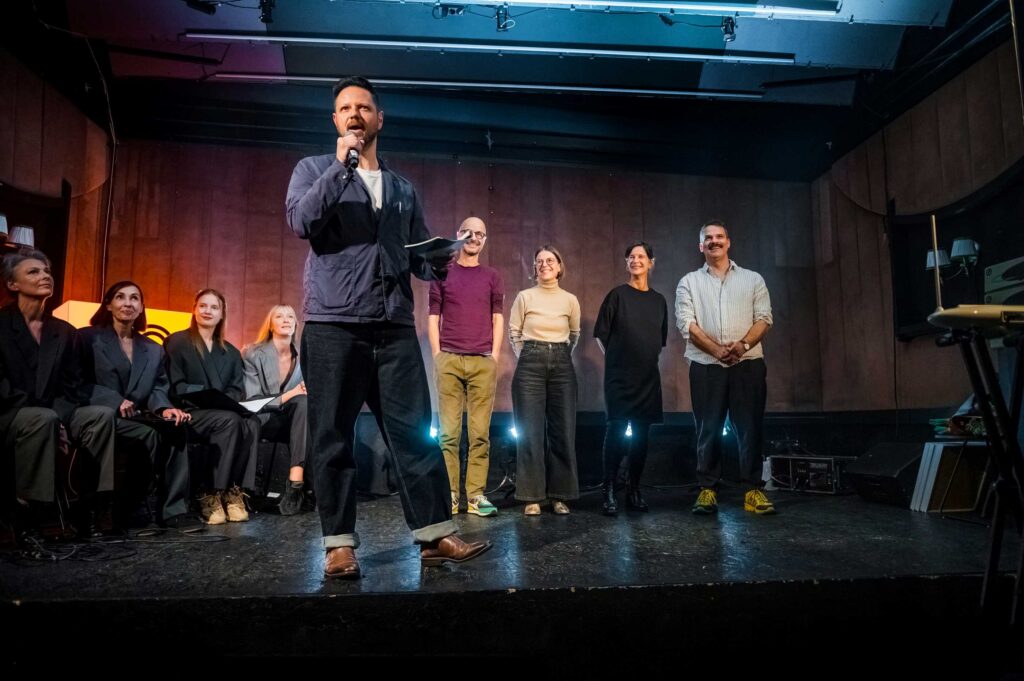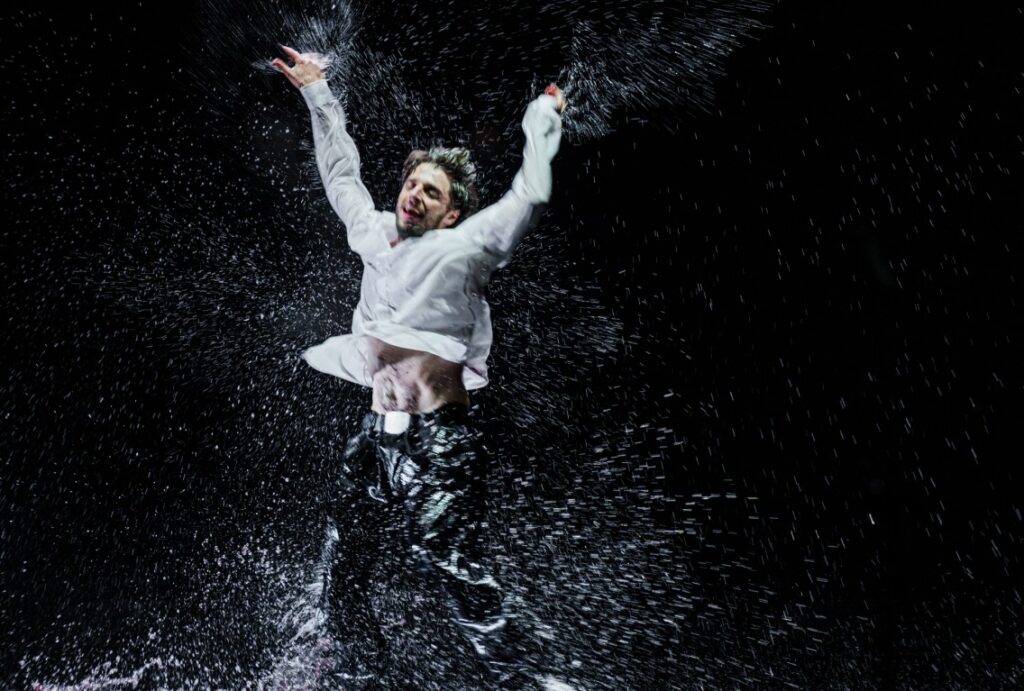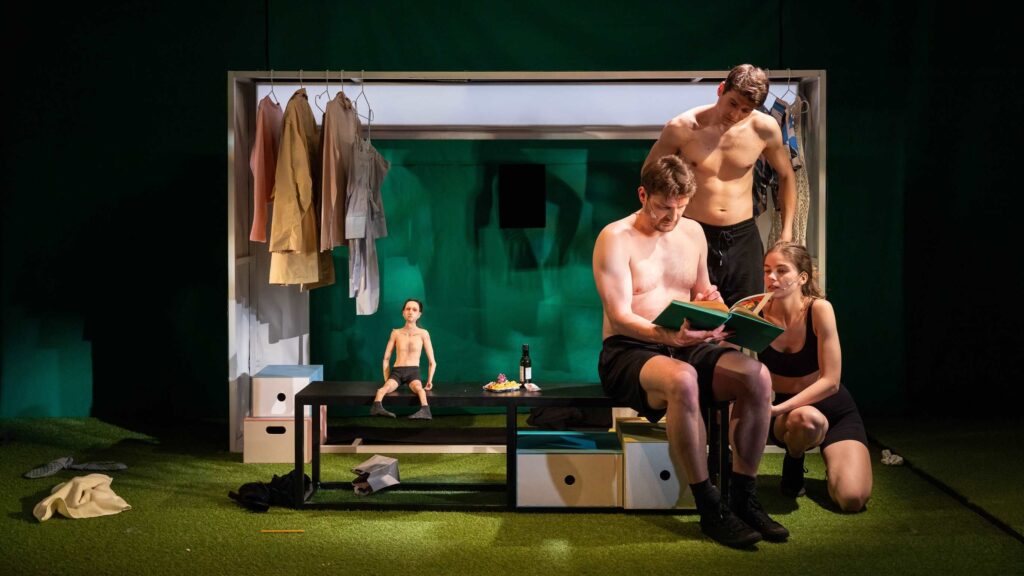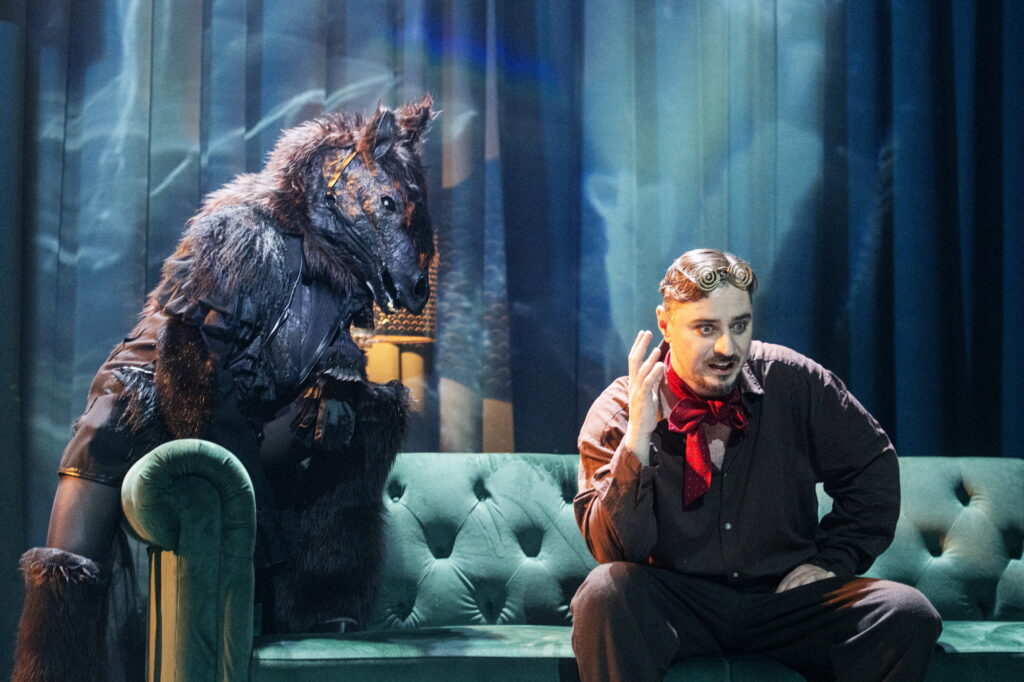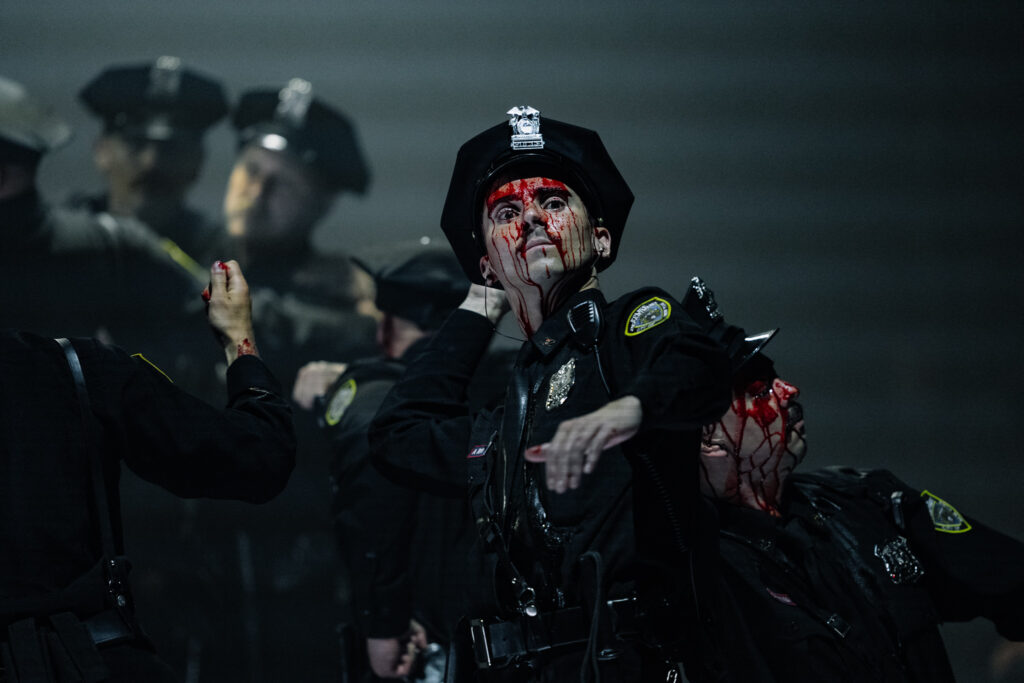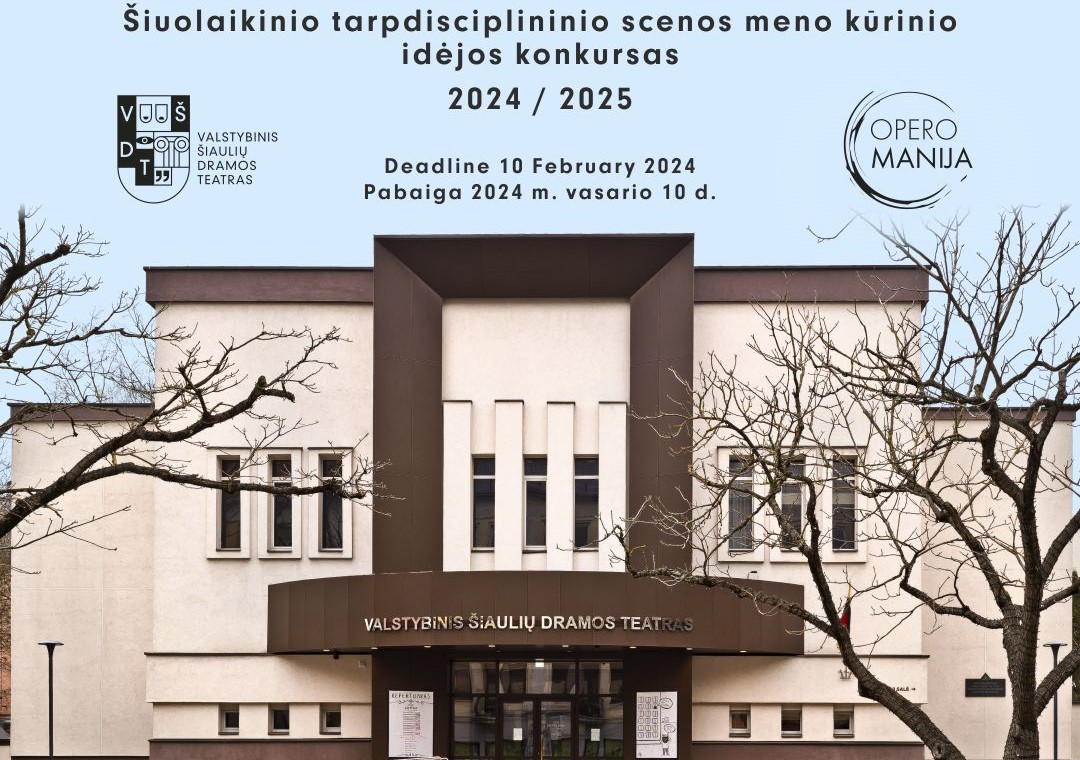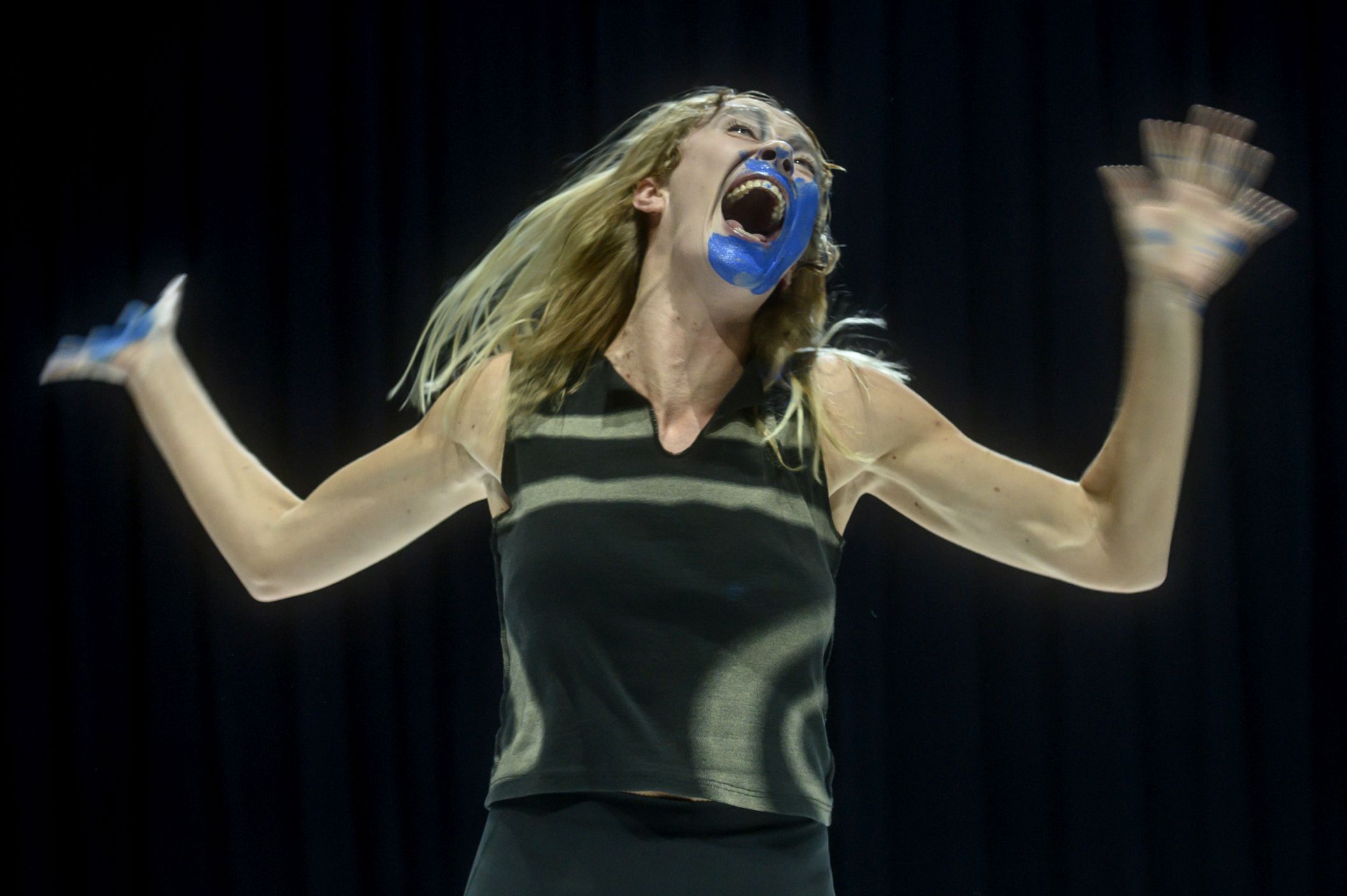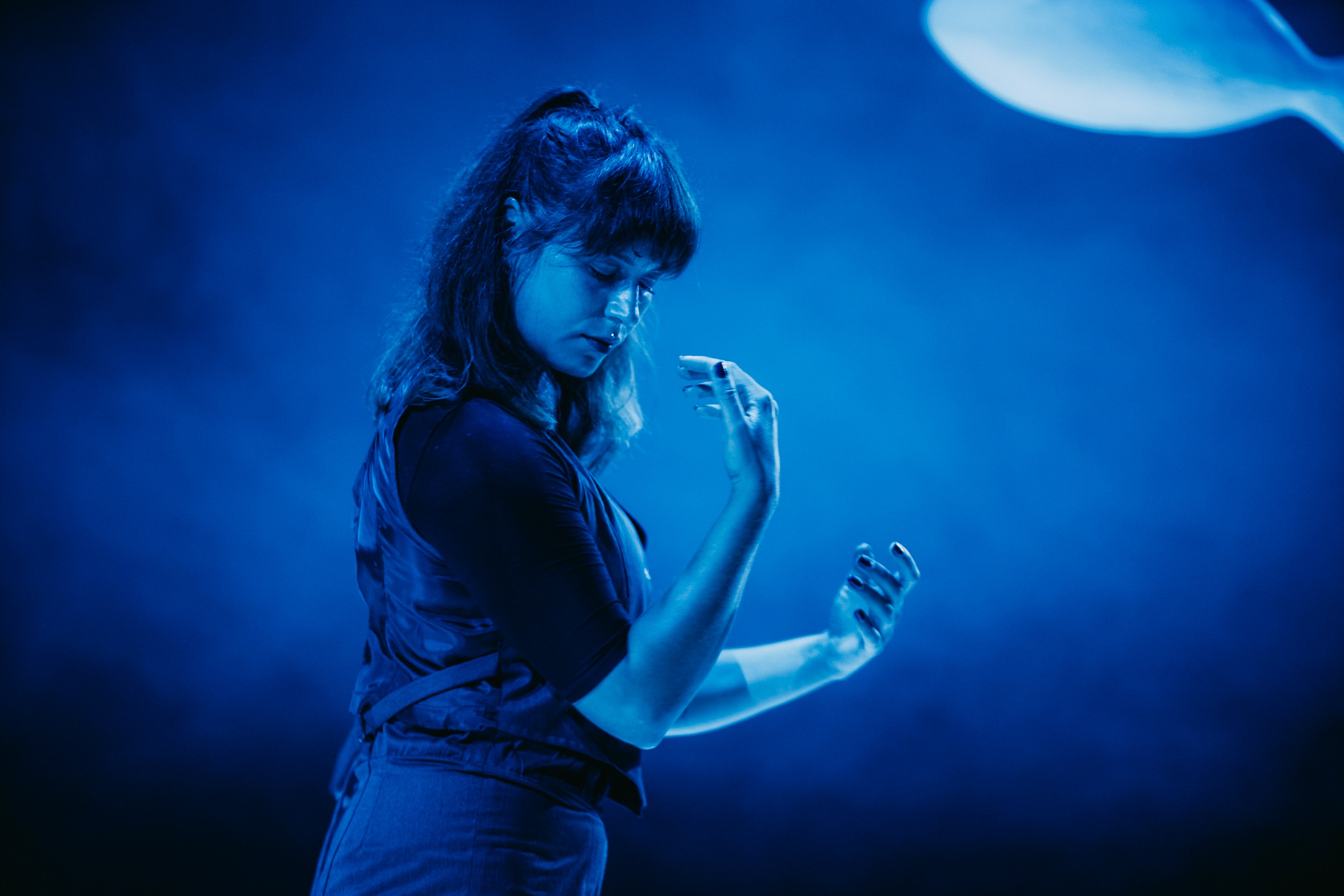The question of what new name will finally appear in the sky of Lithuania following Oskaras Koršunovas - who made his debut nearly 30 years ago - has been reiterated not only among theatre critics but also among Lithuanian spectators. Even though new creators appear constantly, none of them has received wide international recognition. Today's search radars, however, keep pointing at Kamilė Gudmonaitė, this year's graduate from Lithuanian Academy of Music and Theatre, who has already staged six performances in Lithuania. Her very first performance based on A Dream Play by August Strindberg received awards at international student festivals in Spoleto (Italy) and Brno (the Czech Republic), toured the festivals in Lion, Rome and Milan. Trans Trans Trance was shown at the festival RADAR OST organised by the Deutsches Theater in Berlin, in Rome and Milano. Future forecasting is risky and places great responsibility on a young creator; however, it is obvious that this young artist does not only change forms and styles with her every performance, but also touches upon the topics that have never been tackled on Lithuanian stage.
Theatre critic Ieva Tumanovičiūtė (7md.lt) writes that the start of the creative path of the director illustrates her striving to oppose the squeezing of personality into a uniform. “The first performance by Gudmonaitė revealed the characteristics of her work, i.e. the harmony of the motifs from the Western and Oriental worlds, the contrasts of black and white, precise mise-en-scènes, a clear composition, attention to the expression of voice and body of actors, the importance of music, and the ability to create engaging, magical performance atmosphere. After the modern classics, the director chose the play God is a DJ by Falk Richter (2015), supplemented it with the extracts from the works by Victor Pelevin and raised the question of whether there was truth in the world of media through the couple of the characters - Him and Her. And then again, it was time for classics - the performance Timon (2016) based on the play by William Shakespeare and the drama of transformations of the main character. So far, two tendencies have been observed in the work of Gudmonaitė - 'classical' and 'contemporary.' The latest work of the director Trans Trans Trance could be attributed to the latter trend. It is like an answer to a rhetoric question: where have women gone? It looks like this performance - clearly standing out in the creative biography of the director - contains more colours and eclectics than her previous works.”
According to theatre critic Kamilė Žičkytė (7md.lt), “By reflecting today's experiences, art also exacerbates social problems, whereas a feminist perspective has too become more and more frequent in the context of Lithuanian theatre. Gudmonaitė invites the audience to confront not always pleasant reality; this has become the topic of her work. Trans Trans Trance presents three girls to the audience. Victims of the beauty industry, beautiful yet shallow women, internet portal commentators, and transsexuals speak through their lips in the collage of separate études. The director has applied a collective creation method and has constructed the performance from the material created and discovered together with actresses Dovilė Kundrotaitė, Jovita Jankelaitytė and Adelė Šuminskaitė during the rehearsals.”
Ieva Tumanovičiūtė offers the following comments on Trans Trans Trance, “The creators of the performance construct the dramaturgy of the play on their own. The facts and documentary material turn into images purified to the level of abstractness, which are perfectly in line with the documentary recordings, where people in the streets are asked to answer the question as to what a woman is or what a transgender person is. In one of the episodes, the character seeping with hatred (Adelė Šuminskaitė) - symbolising the part of Lithuanian society that is actively engaged in the commentaries of news portals - employs colourful epithets and swear-word combinations to mock the personality inconsistent with the binary gender system (Jovita Jankelaitytė). It is never comfortable to witness a rough scene, but it is impossible to remove commentaries from social reality. Yet the tragedy of political theatre that seeks changes in the society is that commentators who should be wised up don't go to the theatre.”
Akvilė Šimėnienė (bernardinai.lt) believes that, “The obvious strengths of the performance are the roles of the actresses. Unrestrictive, unimposing, versatile work of the actresses is highly interesting. As the director has rightly stated, women actors and directors that don't fit into female clichés still comprise the minority in the theatre. The performance includes a lot of free, natural and organic body language. Here, the body is treated without any fear, listening to and revealing the limitations and powers of the body, its pluses and minuses in every-day life; interpreting the body as the means of imprisonment and liberation. It is a peculiar response to the unused potential of women as well as to the repressing, disconcerting and frustrating norm within the theatre with regard to women.”
However, Kamilė Gudmonaitė does not limit herself only to female issues. She has chosen the novel Chapayev and Pustota (published in 1996) by one of the most famous contemporary Russian writers Victor Pelevin for her most recent performance. Just as in most of his novels, the text pierced with brutal reality and philosophical hallucinations eventually focuses on his favourite topics of Buddhist emptiness and the nature of mind. Based on the novel extract “Four,” the performance reveals three intoxicated young men. We have definitely seen such people at the back of a trolley-bus, spitting out sunflower seed shells under the bench in the yard of a block of flats; we must have stepped into a cloud of cigarette smoke as if inadvertently exhaled straight into our faces.
Kamilė Žičkytė (7md.lt) says, “The author and the director seek to mislead the audience in those psychedelic experiences of the characters. You can say that the actors perform their roles too emotionally, that they speak too loudly, or that they behave unexpectedly with all the flashing of red pocket searchlights and artificial blood; you can say that the text constructions are brain-exploding, and you will be right. But in her newest performances, director Kamilė Gudmonaitė speaks about the things that irritate young people and reminds us of the things we don't even want to think about.”
In one of the interviews (bernardinai.lt), Gudmonaitė says that, “Everything started from the topic of femininity; from the question of what a woman is. And when we were discussing this with the actresses, we realised that speaking only about a woman and the related stereotypes was insufficient. We understood that it was necessary to get rid of that femininity and to erase the gender completely. To feel free and be who you really are - women constantly have complexes because of this.”
Speaking about female direction, Gudmonaitė understands that she is different in certain ways, “For some time, I did feel imprisoned by stereotypes and was their victim. There was a time when I thought that a director had to be masculine, logical and strict in “Stanislavski” sort of way; had to wear jackets and speak seriously on serious topics. At times, I even thought that I was similar to such a director; however, eventually, I came to realise that this was self-deception as I was of absolutely different nature - I am feminine and I enjoy being sensitive and irrational. In general, irrationality is a very significant component for me and I like working irrationally with actors.”
“When staging Trans Trans Trance, I realised that I could be whoever I wanted to be. The process with the actresses inspired and liberated me. I stopped thinking about who I should be, how I should look or behave like, or how I should represent myself. The more I think, the more everything looks relative. For instance, in some cultures transgenderism is considered as a manifestation of divinity, whereas in our culture it is interpreted as a disease. If we compare world cultures, tribes and traditions, the concepts of man and woman differ. There is no single truth; there are multiple truths and all of them are correct.”
“Often theatre does not move me because, as people say, a doctor doesn't visit the operations performed by other doctors and doesn't observe them. At the moment, I feel more inspired by philosophy, anthropology. One of my inspirers is the already mentioned philosopher Judith Butler; also, Lithuanian philosopher Algis Mickūnas and Lithuanian mythologist Dainius Razauskas. As regards the sphere of theatre, I am currently interested in German composer Heiner Goebbels, who combines theatre and music in his work. I am no longer that attracted to theatre; I prefer nature or journeys to Oriental countries.”

